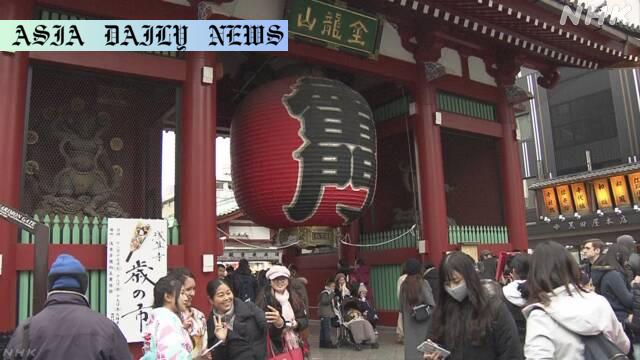Tokyo hotel rates, fueled by rising demand and weak yen, hit their highest levels since 1996, marking a significant economic rebound.
Key Point 1: Tokyo hotel room prices have climbed since 2022 as pandemic restrictions eased.
Key Point 2: The average rate in 2024 jumped approximately 7,000 yen compared to 2019.
Key Point 3: Rising tourism demand, both domestic and international, contributed heavily.
Key Point 4: STR indicates the weak yen as a factor for increased domestic travel.

Introduction: Understanding Tokyos Historic Hotel Rate Surge
Over the past few years, Tokyos hotel industry has shown a remarkable rebound, with room rates climbing steadily since the relaxation of pandemic restrictions in 2022. A recent survey conducted by STR, an affiliate of the CoStar Group, indicates that the average room rate in 2024 reached an unprecedented 26,433 yen, equivalent to roughly 185 US dollars. This marks a significant surge of more than 7,000 yen compared to pre-pandemic rates in 2019. Such a steep rise underscores the sweeping changes in the travel sector, with both domestic and international factors contributing to this upward trend.
Impact of the Pandemic on Tokyos Hotel Prices
During the height of the COVID-19 pandemic in 2020 and 2021, Tokyo�7Fs hotel rates suffered a steep decline, dropping by 20 to 30 percent. The absence of international tourists and reduced domestic travel brought the hospitality industry to a near standstill. Many hotels resorted to significant price reductions to attract local customers and maintain operations. However, once travel restrictions eased in 2022, the hotel sector saw a gradual recovery, which quickly snowballed into significant price hikes.
Factors Driving the Surge
The increase in Tokyo hotel rates can be attributed to several factors. First, the resumption of international travel brought an influx of tourists from abroad. With Japan�7Fs borders reopening, Tokyo became a prime destination for foreign visitors eager to explore its culture, cuisine, and landmarks. Additionally, the weak yen discouraged Japanese residents from traveling overseas, leading to a surge in domestic travel and increased demand for local accommodations. These dual pressures created a competitive landscape in which hotels could raise their prices to meet growing demand.
Breaking Records: The New Normal for Tokyo Hotels
According to STR, the average room rate in Tokyo for 2024 represents the highest figure since 1996. This milestone reflects more than just inflation; it signifies the strength of the tourism rebound and the economic resilience of Tokyo�7Fs hospitality industry. With rates climbing approximately 50 dollars above 2019 levels, it is clear that the industry has not only recovered but is thriving in the new post-pandemic reality.
The Road Ahead: Opportunities and Challenges
Despite the positive momentum, the sustained growth in hotel rates poses challenges for both travelers and operators. Tourists may seek more budget-friendly options, potentially affecting overall occupancy rates. Conversely, the increased revenue provides hotels with an opportunity to enhance services, upgrade facilities, and invest in sustainability initiatives. Balancing affordability while capitalizing on the demand surge will be imperative for long-term success.



Commentary
Personal Reflections on Tokyo�7Fs Hotel Price Increase
The rise in Tokyo�7Fs hotel prices is a fascinating case study in how global and local factors converge to shape market trends. As a traveler, I can�7Ft help but reflect on how these changes affect the broader experience of visiting a world-class destination like Tokyo. The city has always been known for its hospitality, culture, and vibrant energy, and it�7Fs encouraging to see its recovery post-pandemic. However, the sharp increase in hotel rates raises important questions about accessibility and inclusivity for travelers with varying budgets.
Economic Impact on Local Tourism
The surge in domestic travel, driven in part by a weakened yen, highlights the complexity of economic forces at play. On one hand, it�7Fs great to see Japanese residents exploring their own country and contributing to the local economy. On the other hand, the higher cost of accommodations might create barriers for certain demographics, including students, solo travelers, and families. Tourism stakeholders will need to navigate these challenges carefully to sustain their success while ensuring Tokyo remains a welcoming destination for all.
What Lies Ahead for the Hospitality Sector
Looking forward, Tokyo�7Fs hospitality industry faces a delicate balancing act. The rising demand for premium services should encourage innovation and improved offerings, but it must not overlook the importance of affordability. Operators should consider adopting flexible pricing models or introducing tiered service options to appeal to a diverse range of travelers. Ultimately, Tokyo has an opportunity to set a global standard for sustainable and inclusive tourism in a post-pandemic world.